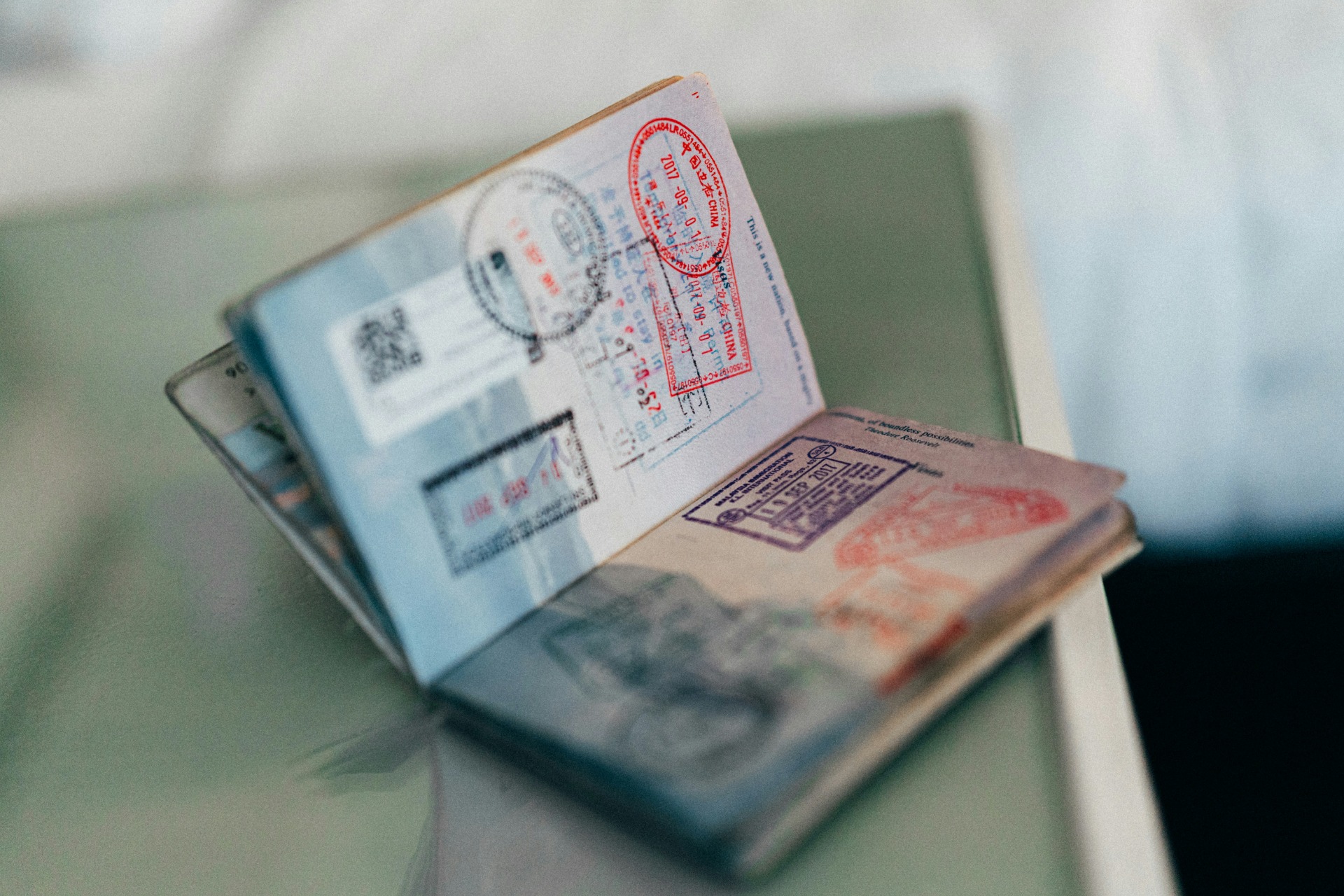
Living in Mozambique : The Practical Side of Expat Life
Expat Visa Requirements in Mozambique
Navigating the Bureaucracy: Your Essential Guide to Expat Visa Requirements in Mozambique
Relocating to Mozambique as a foreign worker requires careful navigation of the country's immigration system, which is governed by the Law n.°23/2022 and subsequent regulations. Obtaining your legal status is a complex and confusing process, which requires multiple coordinated stages, always beginning before you enter the country.
A vital distinction to understand is that the process requires three separate authorizations: Labour Authorization (permission to hire), the Work Visa (permission to enter), and the Residency Permit (DIRE) (permission to live and work).
The Core Expat Pathway: Work Visa to DIRE
For expats seeking long-term employment, the path to obtaining your official work and residency permit, known as the DIRE (Documento de Identificação e Residência para Estrangeiros), is a multi-step process that must be sponsored by a local company.
Phase 1: Obtaining Entry Authorization (Pre-Arrival)
The application for a work visa, which allows you to enter Mozambique for employment purposes, must be done outside Mozambique.
- Work Authorization (Employer's Responsibility): Before you can apply for your visa, your sponsoring company in Mozambique must first obtain Labour Authorisation from the Ministry of Labour. This step verifies the company is permitted to hire a foreign national for the specified task. The employer must prove compliance with tax and social security (INSS) contributions.
- Quota System: Hiring foreign workers is subject to a quota system based on the company size: large companies (more than 100 workers) are limited to 5% foreign employees, medium companies (10-100 workers) to 8%, and small companies (fewer than 10 workers) to 10%. Exceeding these quotas requires additional justification and authorization from the labor authority.
- Work Visa Application (Applicant's Responsibility): Once the employer receives the formal letter authorizing you to work, you must apply for a Work Visa at a Mozambican embassy or consulate overseas.
- Validity: The entry work visa is generally valid for 30 days after your date of entry, and allows for a stay of up to one year, extendable for an equal period, in accordance with the work contract. The work visa is the travel authorization that allows entry, but the permit authorizes the actual employment.
Phase 2: Obtaining Residency (Post-Arrival)
The Work Visa is merely an entry mechanism; upon arrival, you must apply to convert it into the official long-term residency document, the DIRE.
- Temporary Residence Permit (DIRE): This permit is generally issued for a period of one year and can be renewed annually. After consecutive renewals, temporary residence (held for ten or more years) may grant eligibility to apply for Permanent Residence.
- Permanent Residence Permit: This permit is valid for five years and is renewable. Eligibility requires applicants to demonstrate long-term legal residence, often requiring over a decade of continuous lawful status.
Key Visa Categories
Mozambique offers various visa categories tailored to specific purposes of stay.
Tourist Visa (Visto de Turismo) Leisure, family visits, or cultural activities. Generally valid for 30 days per entry, renewable up to 90 days total within a year. Cannot be used for employment or business activities.
Business Visa (Visto de Negócios) Business prospecting, meetings, conferences, establishing contacts. Allows a stay up to 90 days (multiple entry). Does not entitle the holder to work or perform hands-on work. Requires letter of invitation.
Short-Term Work Permit Temporary assignments or specialized services. Limited to 180 days per calendar year for Mining, Oil, and Gas; and 90 days per calendar year for all other sectors. Employer must notify the labor authority before employee enters the country.
Investment Activity Visa Implementing investment projects. Granted to the investor or company director. Minimum investment of US$500,000 for a visa valid up to two years. Investments over US$50 million grant a visa valid up to five years. The visa may lead to a 5-year Residence Permit.
Temporary Stay Visa Granted to the foreign spouse, minor children, or incapacitated children of a Work Visa or Investment Visa holder. Also granted for medical treatment, religious, or volunteer activities. Allows multiple entries and a stay for a maximum of one year, extendable.
Mandatory Documentation and Compliance Checklist
A core set of documents is required for almost all long-term applications, including work and residence permits.
General Requirements
- Passport Validity: Passport must be valid for at least six months beyond the intended stay. It must have a minimum of three blank pages for endorsements.
- Application Forms: Completed and signed application form. Forms must be completed in English, Portuguese, or French.
- Photos: Two recent passport-sized colour photographs.
- Police Clearance: A Criminal Record Certificate issued by the country of nationality or country of last residence (valid for at least 03 months/90 days).
- Medical Certificate: A health certificate confirming good health (valid for at least 03 months).
- Proof of Funds/Accommodation: Proof of guaranteed housing and means of subsistence.
Specialized Requirements
- Work/Employment: A copy of the Work Contract and the Work Permit/Authorisation issued by the Ministry of Labour is mandatory.
- Dependants: Dependants require a marriage certificate (for partners) or birth certificate (for minors). A signed Term of Responsibility from the principal applicant for the family member is required.
- Business/Sponsorship: Copy of the company's business license (Alvara), Tax Clearance Certificate (Finance Ministry), and INSS certificate are often required to prove the company's compliance.
- Translation and Notarization: All foreign-issued documents, such as marriage certificates or criminal records, must be translated into Portuguese by a sworn translator and notarised/authenticated.
Critical Compliance Obligations on Arrival
Once you enter Mozambique on a Work Visa, strict deadlines apply for converting your status to a DIRE. Immigration violations can result in deportation, future entry bans, and heavy fines.
- Immigration Registration: Within 5 days of arrival, you must register your arrival at an immigration office. Failure to do so incurs a fine of MZN 1,000 per day.
- DIRE Application Deadline: From the date of entry, you have only 30 days to apply for your DIRE. Exceeding this 30-day deadline incurs a penalty of MZN 2,000 per day.
- Travel Prohibition: Once the DIRE application process begins, you cannot leave Mozambique again until you obtain your DIRE.
To successfully navigate the Mozambican visa landscape, expats must remain proactive and extremely thorough, starting the process well in advance to accommodate for potential delays and bureaucratic hurdles.
Exemptions for SADC nationals
Mozambique recognizes its deep regional ties within the Southern African Development Community (SADC), granting several significant exemptions for SADC nationals. However, the most critical rule regarding employment remains: entry exemption does not equate to work authorization.
Here is a breakdown of the special rules and requirements for SADC countries related to entry and work authorization in Mozambique:
I. Special Rules for Visa Entry (SADC Privilege)
Nationals holding passports from SADC countries do not require an entry visa to enter the Republic of Mozambique.
- Exempt Countries: This visa exemption applies to citizens of SADC member states, including Angola, Botswana, Cape Verde, Lesotho, Malawi, Mauritius, Namibia, Seychelles, South Africa, Eswatini (Swaziland), Tanzania, Zambia and Zimbabwe.
- Duration of Stay: This exemption allows foreign nationals to remain in the country for a period that cannot be extended and cannot exceed 90 days.
- Note: Other sources specify that South African and Zimbabwean passport holders are exempt from the visa requirement for entries of up to 30 days.
- Status on Entry: For citizens of visa-exempt countries like South Africa, Migration will simply stamp the passport at the port of entry, and that stamp is equal to a tourism visa.
II. The Crucial Work Permit Requirement
Despite the SADC-based exemption from obtaining an entry visa, this entry permission does not grant the right to work in Mozambique.
- Work Permit Requirement: The visa exemption addresses only entry requirements, not work authorization. A foreign worker from a visa-exempt country, such as a South African citizen, still needs a work permit to be legally employed.
- Violation Risk: Conflating entry permission with work permission is considered a dangerous mistake and a violation of immigration law. Foreign workers must obtain work permits before the first day of employment.
- Residency for Work: Even SADC nationals entering under the visa exemption must obtain a residency visa if they intend to reside in Mozambique, as the exemption applies only for visits, not for residency.
III. Bilateral Agreements and Potential Work Exceptions
While the general rule requires a work permit, Mozambican law allows for the possibility of special rules related to bilateral agreements:
- Bilateral Agreements: The new legal framework applies without prejudice to special laws, bilateral or multilateral agreements, or international conventions.
- Employment under Non-Work Visa: New regulations (Decree No. 88/2024) permit foreign nationals to enter into employment contracts, even if they entered on a visa other than a work visa, provided that there are bilateral agreements between Mozambique and that country, applied on a reciprocal and proportional basis.
- Trade Agreements: Mozambique is still finalizing a preferential trade agreement with Zambia. Furthermore, the Mozambique-Malawi agreement has simpler rules of origin than those outlined in the SADC Trade Protocol.
- Regional Integration Benefits: Within the context of SADC regional integration, certain goods from the community benefit from reduction or exemption from Customs Duties upon presentation of a certificate of origin.
In summary, the primary advantage for SADC citizens is the waiver of the entry visa requirement for short visits. However, if the intent is employment, they must follow the same multi-step process as non-SADC citizens to secure the necessary Labour Authorization and Work Permit.
related reading:
5. Legal & Administrative Essentials
Articles:
